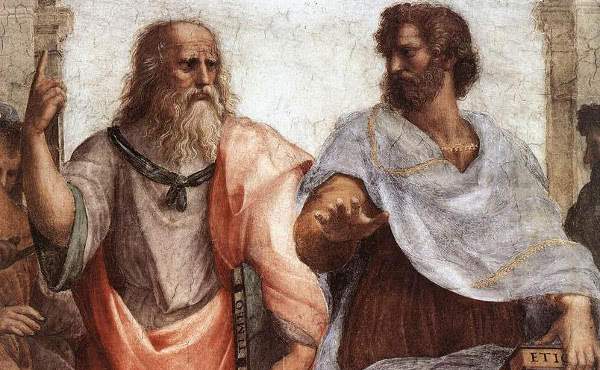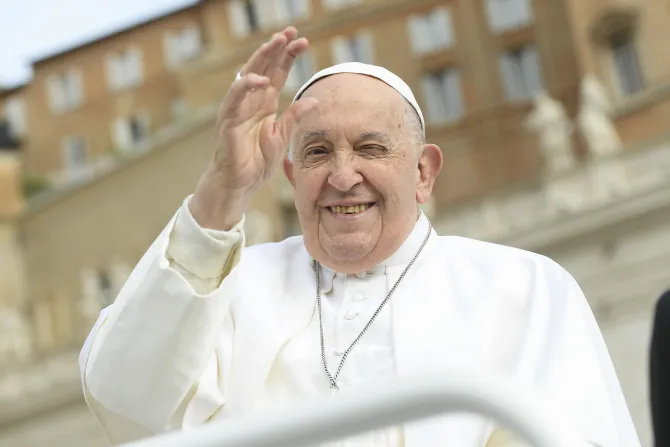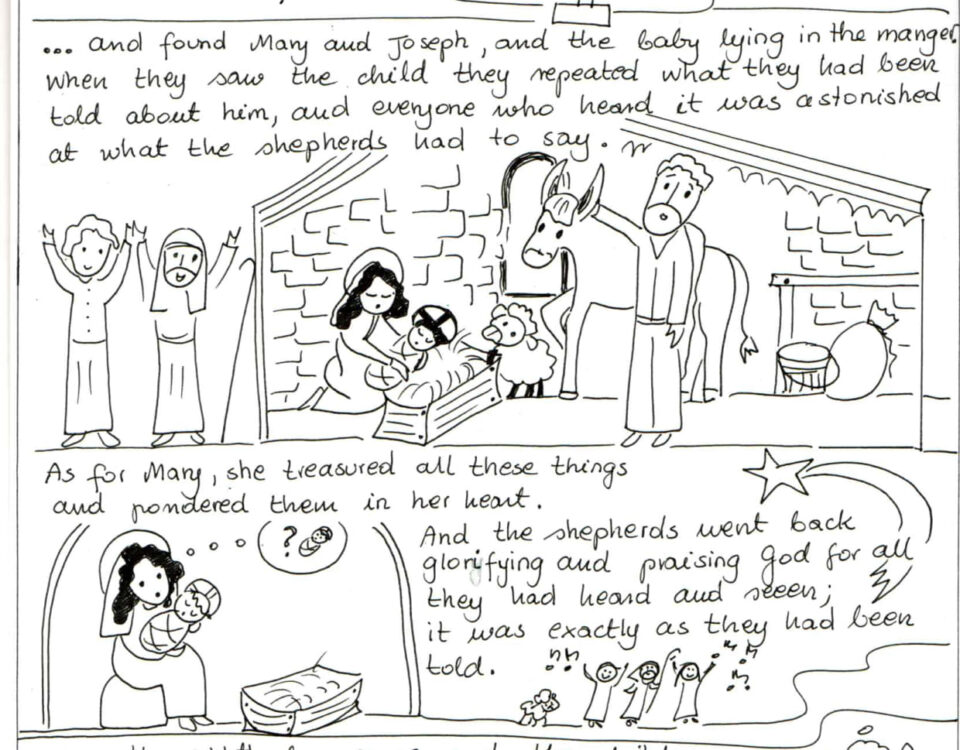Divine Retreat Centre UK – Official Website
The Sin of Omission
October 17, 2022
The Kingdom of God – The Word
October 24, 2022Finding the answer to the question ‘what is the kingdom of God’ takes us only halfway through in our understanding of the whole truth about this kingdom. We have to go deeper. According to the “church fathers”, “Jesus Christ is the kingdom of God in person.” A kingdom that is a person is a very peculiar thing. But when we think about the whole person of Jesus Christ as the Almighty, all-knowing, all-powerful, all-loving and all-encompassing eternal God, then his person being a kingdom is not difficult to comprehend.
In order to know more about the person of Jesus Christ, we have to consider that the history of God did not only begin in the New Testament. It goes all the way back to the Old Testament, from the very beginning of creation, up to the time of the patriarchs, the judges, the kings, and the prophets of Israel. This period foreshadowed the good things that were about to come. Through the writings of the prophets who gave us the prophecies about the promised Messiah, we learn some aspects about the person of Christ that also reveal his kingdom.
First and foremost, Israel, as a nation, originally had God as their King. It was by God’s great power and mighty hand that the Israelites were brought out of slavery in Egypt. It was God’s pillar of cloud and pillar of fire that led them in the wilderness. It was by God’s providence that the Israelites were fed, sustained and strengthened for forty years until they arrived the promised land. Throughout this exodus, God was their king until they asked for a human king to govern them like other nations (see 1 Samuel 8:4-5). Since they chose a human king, as opposed to God, Israel struggled as a nation. They also experienced several invasions by different kingdoms – the Babylonians, Persians, Greeks and the Romans.
It was during the Babylonian invasion that the prophet Daniel prophesied twice about God’s promise of a new kingdom. In the first prophecy, the vision came as a person in the form of a great statue representing the four kingdoms (Babylonian, Persian, Greek, and the Roman kingdom). Each kingdom was represented by different elements – gold, silver, bronze, and a combination of iron and clay. After the reign of the four kings, it was prophesied that a new king will come representing the fifth kingdom. In the vision, the fifth kingdom was represented as a stone that is of a divine nature and it was shown to strike the whole statue down in pieces. “A stone was cut out, not by human hands, and it struck the statue on its feet of iron and clay and broke them in pieces. Then the iron, the clay, the bronze, the silver, and the gold, were all broken in pieces and became like the chaff of the summer threshing floors; and the wind carried them away, so that not a trace of them could be found. But the stone that struck the statue became a great mountain and filled the whole earth” (Daniel 2:34-35).
In the second prophecy, Daniel had a vision in which he saw four beasts, still representing the four kingdoms—the Babylonian, Persian, Greek, and the Roman kingdom (see Daniel 7:1-14). After the reign of the four kings, it’s prophesied that a new king will come. This vision came in the form of a man—the king of the fifth kingdom. “As I watched in the night visions, I saw one like a human being coming with the clouds of heaven. And he came to the Ancient One and was presented before him. To him was given dominion and glory and kingship, that all peoples, nations, and languages should serve him. His dominion is an everlasting dominion that shall not pass away, and his kingship is one that shall never be destroyed” (Daniel 7:13-14). The vision was interpreted this way: “As for these four great beasts, four kings shall arise out of the earth. But the holy ones of the Most High shall receive the kingdom and possess the kingdom forever—forever and ever” (Daniel 7:17-18).
The prophecies turned out to be true after the Babylonians were defeated by the Persians, then by the Greeks, and lastly by the Romans. The Romans had been reigning over Israel less than a hundred years when Jesus came. When the time of fulfillment had come, Jesus introduced himself and his ministry for the first time in public. He proclaimed the kingdom of God as though they are one and the same. “Jesus came to Galilee, proclaiming the good news of God, and saying, “The time is fulfilled, and the kingdom of God has come near; repent and believe in the good news” (Mark 1:14-15). When Jesus came to Galilee, the kingdom of God also came near. What should we learn about Jesus as the new kingdom? Where can he be found? How can we become a part of him?
# 1. The Entry into Jerusalem
1. According to Jewish tradition, the sign of the new king is represented by his entry into Jerusalem with a donkey. Jesus made a triumphant entry into Jerusalem riding on a donkey. “They brought the donkey and the colt, and put their cloaks on them, and he sat on them” (Matthew 21:7). “So, they took branches of palm trees and went out to meet him, shouting, “Hosanna! Blessed is the one who comes in the name of the Lord— the King of Israel!”” (John 12:13). This is a very symbolic gesture that speaks about the fulfillment of the prophecy concerning the coming of the Messiah. It was Zechariah who prophesied, “Rejoice greatly, O daughter Zion! Shout aloud, O daughter Jerusalem! Lo, your king comes to you; triumphant and victorious is he, humble and riding on a donkey, on a colt, the foal of a donkey” (Zechariah 9:9). When David was chosen as king, he was anointed with oil by Samuel and then he entered Jerusalem with a donkey, loaded with bread, a skin of wine, and a kid… (see 1 Samuel 16:19-21). Likewise, Jesus’ entry signifies the entry of the new king and the coming of the new kingdom.
# 2. The New Passover
2. It’s also prophesied that the Messiah will establish the new kingdom on the day of the Passover. This was fulfilled when Jesus established the Eucharist (the new Passover) at the Last Supper. “Then he took a loaf of bread, and when he had given thanks, he broke it and gave it to them, saying, “This is my body, which is given for you. Do this in remembrance of me.” And he did the same with the cup after supper, saying, “This cup that is poured out for you is the new covenant in my blood” (Luke 22:19-20). Also, it was Jeremiah who prophesied that God would establish a new covenant. “The days are surely coming, says the Lord, when I will make a new covenant with the house of Israel and the house of Judah” (Jeremiah 31:31).
In the new covenant, it’s prophesied that the new law will be written in our hearts. “But this is the covenant that I will make with the house of Israel after those days, says the Lord: I will put my law within them, and I will write it on their hearts; and I will be their God, and they shall be my people. No longer shall they teach one another, or say to each other, “Know the Lord,” for they shall all know me, from the least of them to the greatest, says the Lord; for I will forgive their iniquity, and remember their sin no more” (Jeremiah 31:33-34). This is fulfilled by Christ in the Eucharist, where we receive His Body (the bread) and His Blood (the wine). This is the sign of the new kingdom “written not with ink but with the Spirit of the living God, not on tablets of stone but on tablets of human hearts” (2 Corinthians 3:3). This is the indwelling presence of the Holy Spirit who becomes a preeminent figure in our lives and enables us to proclaim the truth, as though Christ has conquered us: “it is no longer I who live, but it is Christ who lives in me” (Galatians 2:20)
# 3. The Bread of Life
3. Jesus gave himself as the bread of life and as a sign from heaven of his kingdom. “Jesus said to them, “I am the bread of life. Whoever comes to me will never be hungry, and whoever believes in me will never be thirsty” (John 6:35). Jesus is the bread that came down from heaven, just like the manna in Moses’ time. But the new bread is more superior because it is the real person of Christ, which he gives as real food and real drink. “I am the bread of life. Your ancestors ate the manna in the wilderness, and they died. This is the bread that comes down from heaven, so that one may eat of it and not die. I am the living bread that came down from heaven. Whoever eats of this bread will live forever; and the bread that I will give for the life of the world is my flesh” (John 6:49-51).
Through this spiritual food that enters into our souls, our eyes are being opened to the fullness of truth – Jesus Christ. “Though the Lord may give you the bread of adversity and the water of affliction, yet your Teacher will not hide himself any more, but your eyes shall see your Teacher. And when you turn to the right or when you turn to the left, your ears shall hear a word behind you, saying, “This is the way; walk in it” (Isaiah 30:20-21). This is the spiritual experience of the two disciples on the road to Emmaus. They shared a meal with the risen Christ without recognizing Him. When Jesus was at the table with them, He took bread, blessed it, broke it and gave it to them, “then their eyes were opened, and they recognized him” (Luke 24:31). Then they testified, “The Lord has risen indeed” (Luke 24:34). The Resurrection of Christ signifies that He is Lord, King and Savior of the world, because he conquered the unconquerable – that is, death. The Resurrection is a miracle that only the one who is God and all powerful can accomplish.
# 4. The Sign of Suffering
4. Jesus said, “The kingdom of God is not coming with things that can be observed; nor will they say, ‘Look, here it is!’ or ‘There it is!’ For, in fact, the kingdom of God is among you” (Luke 17:20-21). He explained this even further by saying, “The days are coming when you will long to see one of the days of the Son of Man, and you will not see it. They will say to you, ‘Look there!’ or ‘Look here!’ Do not go, do not set off in pursuit. For as the lightning flashes and lights up the sky from one side to the other, so will the Son of Man be in his day. But first he must endure much suffering and be rejected by this generation” (Luke 17:22-25). The coming of the kingdom of God would be preceded by his suffering. The suffering of the Messiah was prophesied by Isaiah, “He was despised and rejected by others; a man of suffering and acquainted with infirmity; and as one from whom others hide their faces; he was despised, and we held him of no account. Surely, he has borne our infirmities and carried our diseases; yet we accounted him stricken, struck down by God, and afflicted. But he was wounded for our transgressions, crushed for our iniquities; upon him was the punishment that made us whole, and by his bruises we are healed” (Isaiah 53:3-5).
Jesus made a reference to his suffering and compared it with the destruction of the temple. “Jesus answered them, “Destroy this temple, and in three days I will raise it up.” The Jews then said, “This temple has been under construction for forty-six years, and will you raise it up in three days?” But he was speaking of the temple of his body.” (John 2:19-21). Jesus was condemned to death, scourged, flogged, struck on the head, mocked, slapped, spat on, stripped, made to wear a crown of thorns, carried a heavy cross and then crucified. This was his passion, crucifixion and death – this was the “destruction” of the temple of his body, which was raised from the dead on the third day. The day he rose from the dead was the day his kingdom was established. “After his suffering, he presented himself alive to them by many convincing proofs, appearing to them during forty days and speaking about the kingdom of God” (Acts 1:3)
# 5. The Sign of Power and Dominion
5. Jesus’ resurrection was followed by his glorious ascension to heaven, where he is exalted at the right side of the Father. “Being seated at the Father’s right hand signifies the inauguration of the Messiah’s kingdom, the fulfillment of prophet Daniel’s vision concerning the Son of man: “To him was given dominion and glory and kingdom, that all peoples, nations, and languages should serve him; his dominion is an everlasting dominion, which shall not pass away, and his kingdom, one that shall not be destroyed” (CCC 664). Stephen, the first martyr of the Church, saw Jesus’ reign in a vision. “Filled with the Holy Spirit, he gazed into heaven and saw the glory of God and Jesus standing at the right hand of God. “Look,” he said, “I see the heavens opened and the Son of Man standing at the right hand of God!” (Acts 7:55-56). Jesus was exalted by God not only because he is the Son but also because he “did not regard equality with God as something to be exploited, but emptied himself, taking the form of a slave, being born in human likeness. And being found in human form, he humbled himself and became obedient to the point of death—even death on a cross” (Philippians 2:7-8).
Jesus’ power and dominion is also shown by the authority he gave to his disciples. He said to them, “Go into all the world and proclaim the good news to the whole creation. The one who believes and is baptized will be saved; but the one who does not believe will be condemned. And these signs will accompany those who believe: by using my name they will cast out demons; they will speak in new tongues; they will pick up snakes in their hands, and if they drink any deadly thing, it will not hurt them; they will lay their hands on the sick, and they will recover” (Mark 16:15-18). This is the fulfillment of Jesus’ words that the “kingdom of God is among you”. It is reigning within us with power. It is the gift Jesus bestowed upon His members (the body of Christ, the Church), that is, the “authority to tread on snakes and scorpions, and over all the power of the enemy” (Luke 10:19). Therefore, having the person of Christ dwelling within us not only makes us partakers of his divine nature but also gives us a share in his divine power.
Conclusion
The presence of the kingdom of God, that is, the person of Christ is made visible through us, who are the likeness of Christ. His kingdom is already here in our hearts and would be realized in its “fullness” when we reach heaven. It is the state of our being, the highest state of blessedness, wherein we achieve perfect union with God. If we want the fullness of the kingdom of God, we have to conquer this world, “looking to Jesus the pioneer and perfecter of our faith” (Hebrews 12:2) and through him, achieve the perfection that the Father seeks in us so that we may be wholly united with him.



